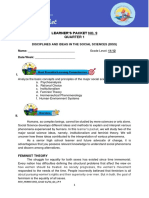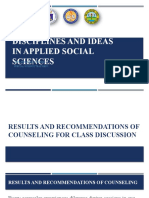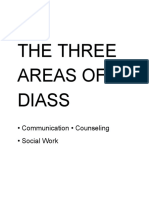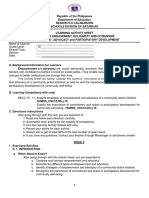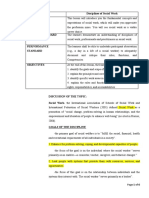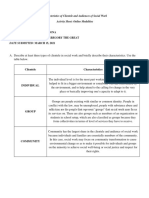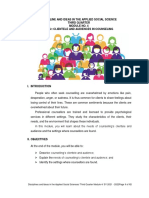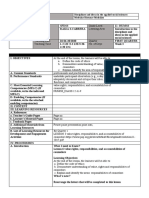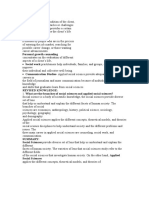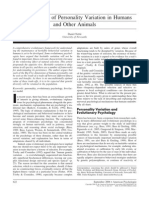0% found this document useful (0 votes)
2K views2 pagesACA Ethics: Counseling Relationships
The document discusses three key areas from the American Counseling Association's code of ethics: counseling relationships, confidentiality, and professional responsibility. It provides details on 10 aspects of counseling relationships, including client welfare, respecting diversity, client rights, clients served by others, personal needs and values, dual relationships, sexual intimacies with clients, multiple clients, group work, and fees. Confidentiality and professional responsibility are also discussed as important areas from the code of ethics but no details are provided on those sections.
Uploaded by
HAKDOGCopyright
© © All Rights Reserved
We take content rights seriously. If you suspect this is your content, claim it here.
Available Formats
Download as PDF, TXT or read online on Scribd
0% found this document useful (0 votes)
2K views2 pagesACA Ethics: Counseling Relationships
The document discusses three key areas from the American Counseling Association's code of ethics: counseling relationships, confidentiality, and professional responsibility. It provides details on 10 aspects of counseling relationships, including client welfare, respecting diversity, client rights, clients served by others, personal needs and values, dual relationships, sexual intimacies with clients, multiple clients, group work, and fees. Confidentiality and professional responsibility are also discussed as important areas from the code of ethics but no details are provided on those sections.
Uploaded by
HAKDOGCopyright
© © All Rights Reserved
We take content rights seriously. If you suspect this is your content, claim it here.
Available Formats
Download as PDF, TXT or read online on Scribd
/ 2






